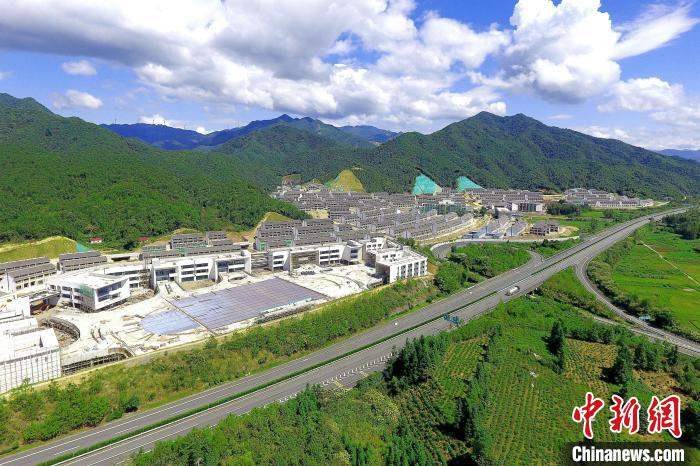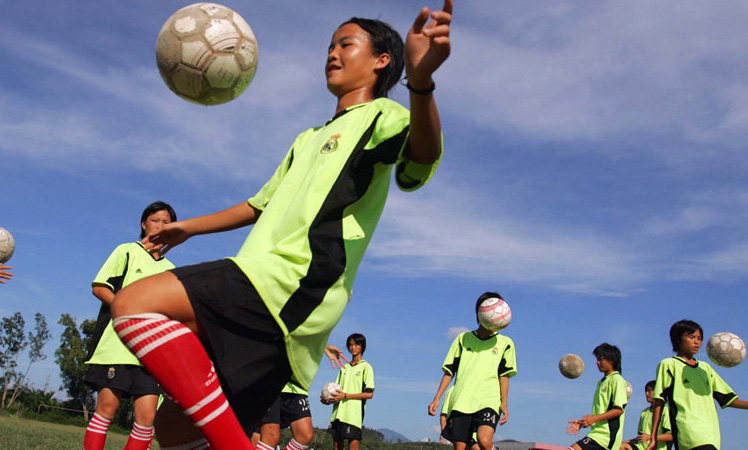Villagers in Jiangxi benefit from improved housing conditions thanks to rural vitalization programs
Villagers in a township in east China's Jiangxi Province are now living a better life, thanks to local efforts aimed at improving housing conditions and developing characteristic industries in recent years.

Photo shows a resettlement site in Xihu township, Fuliang county of Jingdezhen city, east China's Jiangxi Province, where four natural villages are receiving support from rural vitalization programs. (Photo/Deng Jie)
Xihu township in the Fuliang county of Jingdezhen city has initiated a rural vitalization program to move villagers out of their substandard dwellings and into newly built homes. In September 2021, the first batch of villagers from the Panxi village of the township had a chance to choose their new homes.
Wang Guoqing, a local villager who participated in the program, used to live in a dilapidated house. “My family always dreamt of moving into a new house, but it would cost us hundreds of thousand yuan to build one,” said Wang. “Now my family has gotten a new house and an extra 40,000 yuan (about $6,300) in land acquisition compensation,” Wang added. “The house is very beautiful, and provides a good lighting and ventilation system,” the 43-year-old remarked with satisfaction.

Photo shows newly constructed multi-storied villas at a resettlement site in Xihu township, Fuliang county of Jingdezhen city, east China's Jiangxi Province, a locality that has benefited in recent years from rural vitalization programs. (Photo/Deng Jie)
In addition, by making the best of local natural resources and its tea culture, the township has also further promoted characteristic local industries such as organic tea, vegetables and medicinal herbs, as well as boosting sightseeing in the area. It has established a cooperative and promoted a business model that integrates companies, planting bases and farmers, all while encouraging local villagers to engage in tea production, modern agriculture, and tourism, among other business sectors.
At present, Wang plants around 40 mu (about 2.67 hectares) of tea in the locality. “In the past, I would visit the tea shops one-by-one to sell my tea, but now I sell it directly to the cooperative. I no longer worry about sales channels and my business has gotten better and better,” the man said.
Photos
Related Stories
- Lotus-related industry at heart of village’s drive towards rural vitalization in Hainan
- Internet technology delivers real benefits to China’s farmers, contributes to its rural construction
- County in Zhejiang provides strong financial support to young entrepreneurs returning to hometowns
- Art serves as a welcome approach to help renovate village in SW China’s Chongqing
- China outlines key tasks to fully advance rural vitalization in 2022
- China outlines tasks to advance rural vitalization in 2022
Copyright © 2022 People's Daily Online. All Rights Reserved.










